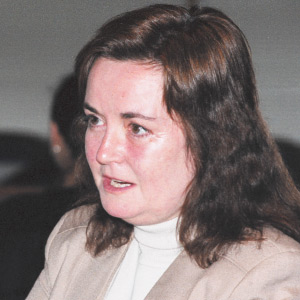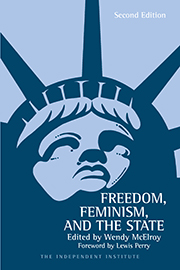Every day it becomes clearer: the three Duke University students accused of kidnapping and sexual assault are innocent. The rape charge against them has been dropped, but no one expects District Attorney Nifong, Duke University or the hang-’em-without-a-trial contingent in the media to apologize.
In decency, however, the accusers could be expected to stop defaming the ‘Duke 3’ as rapists.
On Jan. 9, the National Sexual Violence Resource Center, a prominent agency in this field, posted “Talking Points: Duke University Lacrosse Team Rape Case” on its web site. The post occurred 18 days after the rape charges had been dropped. In short, there was and is no rape case for the “talking points” to address. Even the popular gender feminist site Feministing had conceded “it probably isn’t appropriate to continue calling this the ‘Duke rape case’.”
In its online talking points, the NSVRC acknowledged the dismissal of rape charges and then trivialized the event. For example, it explained, “Nifong loses nothing because the remaining sexual crime, called ‘sexual offense’ in North Carolina, carries the same punishment as rape.”
In other words, according to the NSVRC, since a remaining charge carries the same jail time as rape, it is equivalent to rape; the accused are still de facto rapists. The agency speculated further that the dismissal was merely “strategic” and, then, continued to discuss the case in terms of a “rape.”
Why does such defamation continue?
Because more is at stake than the guilt or innocence of three men.
A paradigm of victimhood, especially of women who allege rape, is on the line. The core of the paradigm is the assumption that women do not lie about crimes like rape.
The widely used and accepted statistic on false accusations of rape is that about two percent of charges are false. However, legal scholar Michelle Anderson of Villanova University Law School reported in 2004 that “no study has ever been published which sets forth an evidentiary basis for the two percent false rape complaint thesis.”
The Duke case deals a body blow to this paradigm. Both an accuser and her witness lied repeatedly; the district attorney actively abetted the deception; the media gulped the lies down whole. Duke also exposes the wrenching devastation wrought on the lives of those who are falsely accused and their families. The case may become a pivot point in how society views accusations of rape and the pivot will be away from automatically believing accusers.
Within this context, the NSVRC’s “talking points” make sense. Otherwise, the NSVRC’s actions—acting as an advocate for one side of an ongoing criminal trial—would not call into question the federal funds it receives. One of NSVRC’s major funders is the Centers for Disease Control, a federal agency. It is therefore interesting to examine how the NSVRC is conducting its advocacy as to not jeopardize its government funding.
The main author of the “talking points” is identified by several respected Internet sites as the feminist law professor and former sex crime prosecutor Wendy Murphy. The ascription is based on the fact that Murphy is the only person named by the document and that the wording closely resembles an earlier email Murphy circulated in academic circles. Whether she is the sole author, however, Murphy clearly endorses the contents of the “talking points” and played a defining role in its development.
Murphy, who is renowned for condemning the ‘Duke 3’ in the media, stated on the MSNBC News Show The Situation, “I never, ever met a false rape claim, by the way. My own statistics speak to the truth.”
What are some of the ‘truths’ presented by the NSVRC “talking points” and Murphy? Consider two.
Number One: The “talking points” address Nifong’s suppression of DNA evidence—a transgression for which he is being investigated on ethics charges by the North Carolina State Bar. The head of a lab testified in court that Nifong told him not to reveal exculpatory results.
The “talking points” state, “One can argue that Nifong’s withholding of this information was proper because the [accuser’s] sexual history, like the sexual history of the defendants, is constitutionally protected private information. It is improper for any prosecutor to disclose this information without a hearing at which a judge must make a ruling to decide whether sexual history is relevant to an issue in dispute.”
K.C. Johnson, a professor of history at Brooklyn College who maintains the “Durham in Wonderland” website comments, “Murphy appears unaware with North Carolina law, passed in 2004.
“The state’s open discovery statute requires all results of forensic tests to be turned over to the defense. The prosecutor does not have the authority to withhold any information, anywhere in his file, from the defense.”
Number Two: The “talking points” state, “The defense would have the public believe that this was a false report made to get money, but remember that according to a well-sourced news report by the Wilmington Journal in June 2006, the [accuser] rejected a payment of over 2 million dollars last spring to back out of the case.”
In point of fact, the bribe accusation came from the accuser’s cousin who was identified anonymously as “Jakki.” The Durham police who have hardly acted in the interests of the Duke 3 investigated and found no evidence of a bribe. Indeed, the accuser denied making that claim to her cousin.
And so the defamation and misinformation continues.
To those who ask, “What will make it cease?” the answer is clear: nothing.
The attack is not based on what is true or false, on whether a rape occurred or not. NSVRC derives its money from the current paradigm of victimhood. Murphy has based her reputation on it. They are fighting for their lives and livelihood.









